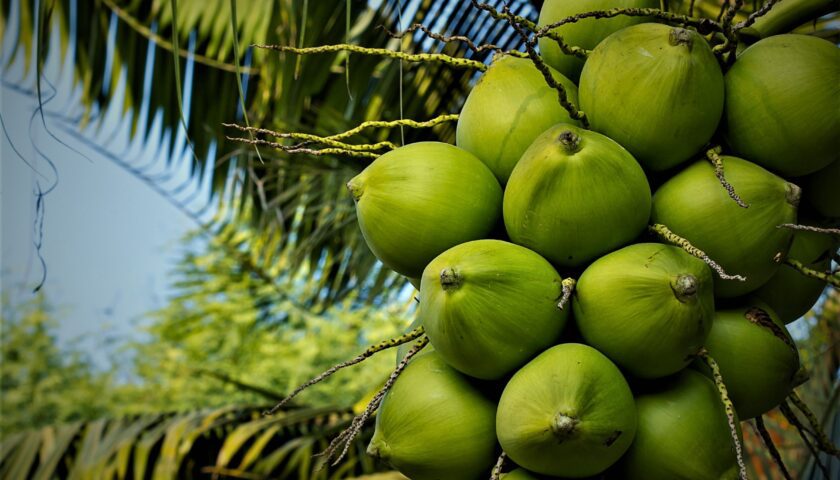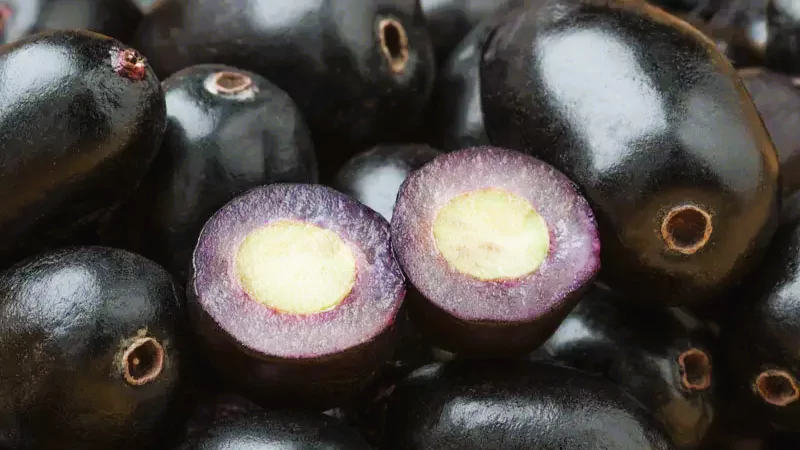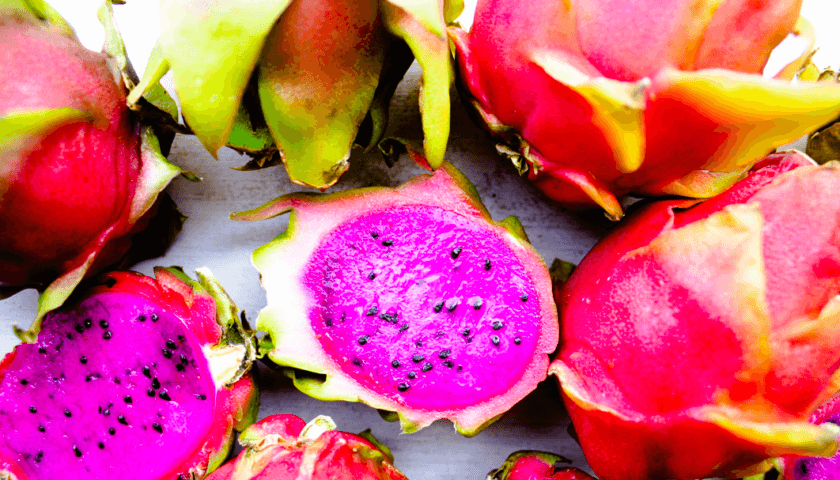Coconut
Coconut (Coco nucifera) is a fruit and nut of the palm family. They are found in tropical areas where they are harvested for their meat, oil and juice. In the United States, the fresh coconut is considered a specialty food. However, it is becoming easier to find coconuts or coconut flakes in the growing popular local markets. Shredded coconut is commonly found in grocery stores.
Coconut can be a delicious and nutritious addition to your diet when eaten in moderation. Coconut contains saturated fat, and provides manganese and fiber.
Physical description of Coconut
A single coconut tree can produce 100 coconuts per year, and each fruit takes one year to mature. Ripe coconuts, ovoid or ellipsoid in shape, 300 to 450 mm (12 to 18 inches) long and 150 to 200 mm (6 to 8 inches) wide, with a thick fibrous ring surrounding the nut know a business seed.
A hard shell covers the thin embryo and its large endosperm, which consists of both meat and water. Coconuts float easily and are dispersed throughout the tropics by rain and humans.
Varieties In Coconut
There are only two different types of coconuts, tall and dwarf.
The most common tall trees are West Coast Tall and East Coast Tall. Dwarf species are short and their lifespan is short compared to the tall ones. Tall x Dwarf (TxD), Dwarf x Tall (DxT) are two important hybrids.
There are 10 different combinations of hybrids, developed by Kerala University of Agriculture and Tamil Nadu University of Agriculture and licensed for marketing. They produce high yields under good management conditions. Laccadive Ordinary, Andaman Ordinary, Philippines, Java, Cochin-China, Kappadam, etc. are the other main cultivar cultivars.
Nutrition in coconut

The main nutrient in coconuts is their high content of saturated fat. Coconut is a great source of medium triglycerides (MCTs), which are saturated fats that are easily digested and absorbed by the body.
This type of fat is not only useful for providing energy, but also for the abundance of fat-soluble vitamins such as A, D, E, and K. Also, coconut meat provides good fiber and important minerals such as. manganese. , copper, selenium, phosphorus, potassium and iron.
Health Advantages From Coconut
Can lower blood sugar
Coconut water can improve blood sugar control in animals with diabetes. But similar studies in humans are lacking. However, coconut water also contains magnesium. Hence, this is another benefit of coconut water. Magnesium can help improve insulin sensitivity. In addition, it will reduce blood sugar and type 2 diabetes and prediabetes.
Antioxidants Properties
The reactive molecules produced by our cells are called free radicals. Our cells produce it during metabolism. Stress or damage supports their production. Too many free radicals in your body will cause a state of oxidative stress. It is harmful and can increase the risk of disease.
Coconut water also provides many antioxidants. They contribute to the reduction of oxidative stress. It also helps fight free radicals during exercise. However, heat treatment and pasteurization of coconut water reduce the antioxidant content. To get more antioxidants, opt for fresh coconut water.
Prevention of kidney stones
Kidney stones form when calcium, oxalate, and other crystals form crystals in the urine. These crystals can combine to form small stones. Therefore, it is important to stay hydrated to avoid kidney stones. Plain water is a great choice, but coconut water can also be a great preservative. Research shows that coconut water can be an excellent choice to prevent kidney stones. Coconut water flushes out the chloride and citrate in the hard urine. Also, it shows that coconut water can clean the system effectively. Therefore, it helps to reduce the risk of stones.
It is good for heart health
Coconut water can reduce total cholesterol, bad cholesterol, and TG. As a bonus, it increases the level of high lipoprotein (good cholesterol). High levels of high-density lipoproteins can reduce the risk of heart disease. All these elements of coconut water can protect the heart.
Increasing resistance
Coconut food is good for the immune system. It is antiviral, antifungal, antibacterial and antiparasitic. Consuming coconut oil can help the body develop resistance to disease-causing bacteria and viruses. That said, can you eat raw coconut? Consuming coconut in its natural form can help treat some serious and stubborn illnesses such as throat infections, bronchitis, urinary tract infections, tapeworms and other conditions caused by viruses.
Increases energy
Coconut helps increase energy by burning fat. You can choose coconut to help you lose weight. Triglycerides in coconut oil increase energy expenditure by 5% over 24 hours, leading to long-term weight loss. It is also known to reduce hunger pangs. This directly affects how fatty acids in the body are metabolized into ketones as an appetite suppressant. People who use coconut products regularly have a greater ability to go without food for several hours without hypoglycemic effects. It also promotes healthy thyroid function and helps reduce symptoms of chronic fatigue. However, the effectiveness of eating coconut for weight gain is yet to be studied.
Increases blood cholesterol
Coconut helps improve cholesterol levels in the body and reduces the risk of heart disease. Saturated fats from coconuts raise good cholesterol in the body and keep LDL in the good subtype. This improvement in cardiovascular risk factors leads to a reduction in the risk of developing heart disease.
Bones and teeth are good
Eating coconut promotes the development of healthy bones and teeth. It enables the body to absorb calcium and manganese which promotes bone development. It also prevents osteoporosis, a condition that causes bones to thin and break and lose their density. Therefore, it is a good option for people with lactose intolerance.
Can improve skin health
Coconut oil has many uses that have nothing to do with food. Many people use it in cosmetics to improve the health and appearance of their skin. Research shows that coconut oil can moisturize the skin. It can also improve skin function, helping to prevent excess water loss and protect you from external factors, such as viruses, chemicals and allergens. In fact, a recent study determined that applying 6-8 drops of virgin coconut oil to the hands and leaving it overnight can be an effective way to prevent the skin from use it frequently.
It can also reduce the severity of mild and moderate symptoms of atopic dermatitis, a chronic skin disease characterized by skin inflammation and defects in the skin’s immune function.



